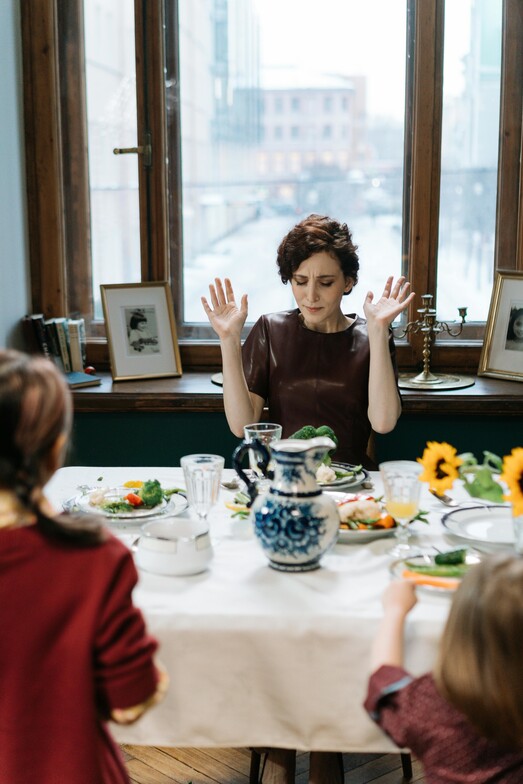
Welcome to our weekly article discussion, where we unpack powerful reads that speak to the lived realities of modern families—and offer tools for healing. This week, we’re diving into an eye-opening piece from Today’s Parent, “Parenting with Trauma,” which explores how unresolved childhood trauma can resurface in our parenting journeys.
But rather than summarize the article alone, we want to take you deeper. Through storytelling and a therapeutic lens, we’ll show what it feels like to parent while carrying trauma—and how trauma counselling can be a transformative tool for healing, growth, and connection.
A Morning Like Any Other—Until It Isn’t
It’s 7:03 AM. The house is already humming with the chaos of cereal boxes, mismatched socks, and cries of “Where’s my water bottle?” Maya, a 34-year-old mother of two, is doing her best to keep it together. She’s running late, her toddler won’t let go of her leg, and her six-year-old just spilled orange juice all over their only clean school uniform.
Then it happens.
Her child looks at her with an all-too-familiar defiance and mutters, “You’re so mean.” Something snaps. Maya feels a hot surge of emotion rise from her chest to her throat. Her voice sharpens. Her jaw clenches. “Enough!” she shouts louder than she meant to. Her children go silent, eyes wide.
And just like that, the shame sets in.
This isn’t the parent Maya wants to be. But mornings like these are becoming more frequent. Underneath the surface, her childhood wounds—neglect, fear, criticism—are writing the script.
The Legacy of Unresolved Trauma
The Today’s Parent article sheds light on a reality many caregivers live but struggle to name: when we haven’t healed from our own childhood trauma, parenting can feel like navigating a minefield.
The day-to-day triggers—tantrums, whining, mess, defiance—can strike at the core of old wounds. A slammed door may echo the unpredictability of an abusive household. A child's meltdown might resurrect memories of being punished for having feelings.
This is why trauma doesn’t stay neatly tucked in the past. It lives in the nervous system, in emotional responses, in the subtle and not-so-subtle ways we relate to our children.
But here’s the powerful truth: trauma is not your fault—but healing is your responsibility. And trauma counselling can offer the roadmap.
Trauma Counselling: Not Just for “Big T” Trauma
One of the most valuable takeaways from trauma counselling is the expansion of what trauma actually is. While many people associate trauma with extreme experiences—abuse, accidents, war—it also includes what experts call “small t” traumas: chronic emotional neglect, bullying, inconsistent caregiving, or constantly walking on eggshells.
In the article, one parent shared how being raised by a mother with severe anxiety shaped her responses. As an adult, she found herself constantly on edge with her children, reacting to their emotions as if they were threats. It wasn’t until she began trauma counselling that she could trace the link between her mother’s fragility and her own hypervigilance.
Trauma counselling helps make these unconscious patterns conscious. Through tools like somatic awareness, inner child work, and cognitive reframing, counselling gives parents the space to notice, name, and shift responses.
A Day in the Life—Now with Trauma Counselling
Let’s revisit Maya.
It’s 7:03 AM again. The cereal is still flying. The toddler still clings to her leg. But this time, Maya notices the heat rising before it boils over. She takes a breath. She crouches down and whispers, “I need a second, kids.” She steps into the bathroom, closes her eyes, and places a hand on her chest.
This—this—is the pause that trauma counselling teaches.
Rather than spiraling into self-criticism or lashing out, Maya has built a small but mighty habit: regulation.
She returns to the kitchen and tries again, softer this time. “Let’s clean up together. I know this morning feels hard.”
The tantrum doesn’t magically stop. But Maya’s response has changed. And that changes everything.
Practical Ways Trauma Counselling Supports Parents
Trauma counselling is not about perfection—it’s about presence. Here’s how it offers actionable support for parents navigating old wounds:
1. Recognizing Triggers
Trauma counselling teaches you to map your emotional terrain—to notice what events, tones, or situations light a fuse. For Maya, the trigger was feeling disrespected, echoing childhood experiences of being ignored or belittled.
Once you recognize triggers, you can begin to separate your child’s behavior from your own history.
2. Building Regulation Tools
When parenting with trauma, your nervous system may be constantly scanning for danger. Trauma counselling helps parents develop regulation tools—breathing techniques, grounding exercises, and body awareness that calm the storm before it erupts.
These tools are especially helpful during meltdowns, bedtime battles, or moments of defiance.
3. Rewriting Internal Narratives
Many trauma survivors carry harsh inner critics. Trauma counselling helps rewrite those scripts. Instead of “I’m a terrible parent,” the narrative becomes, “I’m parenting through trauma, and I’m learning new ways.”
This shift from shame to self-compassion is one of the most powerful gifts of counselling.
4. Modeling Emotional Safety
Children learn not from what we say, but what we model. When we practice repair, own our mistakes, and express feelings without shame, we teach our children that all emotions are welcome.
Trauma counselling equips parents with language like:
“I was feeling overwhelmed, and I yelled. That wasn’t okay. I’m sorry. I’m working on it.”
This models accountability without shame—a foundation of emotional resilience.
Intergenerational Healing Starts with You
Perhaps the most moving insight from the Today’s Parent article is the reminder that trauma is often passed down quietly, through patterns and silence. But it can also end—with awareness, intention, and support.
By seeking trauma counselling, you’re not only tending to your pain—you’re planting seeds for a different future for your children. You’re showing them that healing is possible, that emotions aren’t dangerous, and that connection is stronger than chaos.
Finding the Right Trauma Counselling Support
If you see yourself in Maya’s story—or in the reflections of the parents featured in Today’s Parent—know that you’re not alone. Parenting is hard. Parenting with trauma is a masterclass in resilience.
When looking for trauma counselling, consider the following:
-
Choose a trauma-informed therapist: Look for someone trained in modalities like EMDR, somatic experiencing, or internal family systems.
-
Seek someone with parenting experience or specialisation: This ensures they understand both the inner world of the parent and the practical demands of caregiving.
-
Prioritize safety and rapport: The healing relationship is the cornerstone of effective trauma counselling.
You Deserve Support, Too
We often pour our resources into our children’s well-being—schooling, activities, therapy, health. But you deserve support, too.
You are not broken. You are carrying more than your fair share. And you’re allowed to ask for help.
Trauma counselling doesn’t promise a perfect parent. But it does offer the tools to pause, reflect, and choose new paths. It turns triggers into teachers, tantrums into opportunities for connection, and tears into doorways of healing.
So this week, we invite you to read the Today’s Parent article not as a diagnosis—but as an invitation.
An invitation to reflect.
To soften.
To seek support.
And most of all, to believe that you can break the cycle.
Final Thoughts
Parenting is one of the most vulnerable, demanding, and deeply human experiences we ever undertake. And when we do it with trauma in tow, it can feel like running a marathon with a weighted vest.
But healing is possible. Change is possible. And trauma counselling can light the way.
As you move through your week, we hope you carry this truth with you: Your past does not define your capacity to parent. Your willingness to heal does.
Until next week’s article deep dive, take gentle care of yourselves—and each other.



